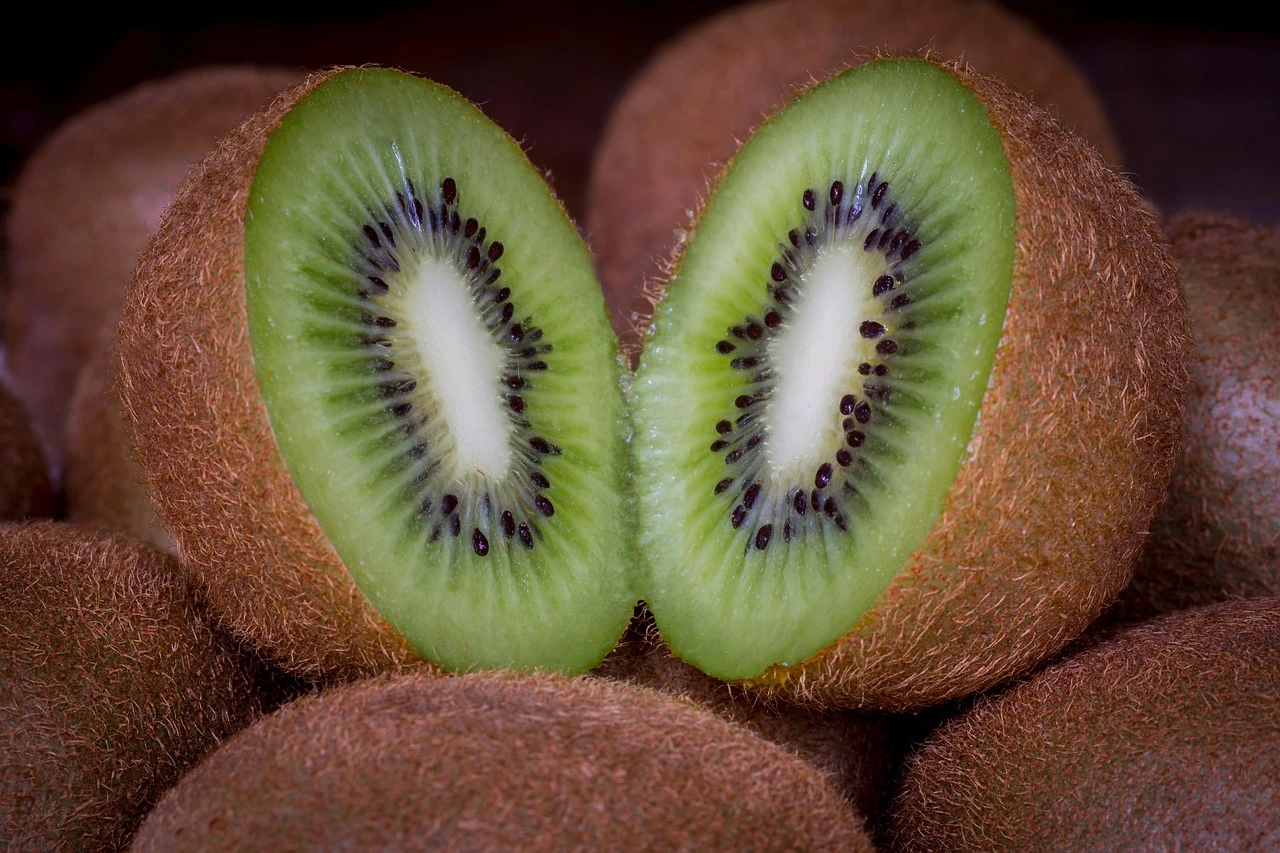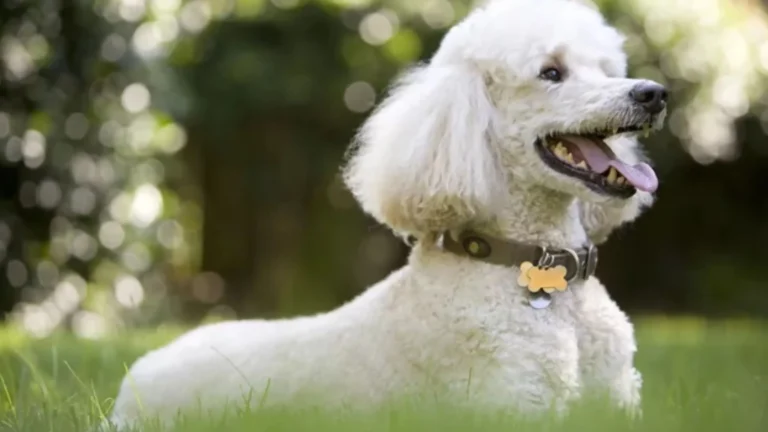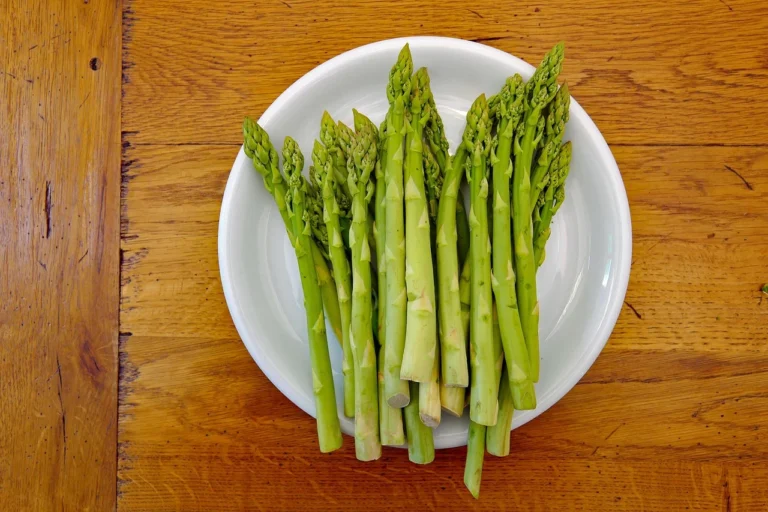Can Dogs Have Kiwi Seeds or Should They Be Removed?
Every dog owner loves sharing treats with their furry friends. Kiwi might seem like a tasty option, but are the seeds safe? The answer is not simple.
Kiwi can be good for dogs, but it’s important to prepare it right. Can dogs eat kiwi seeds safely? Kiwi has health benefits, but you must prepare it carefully to keep your dog safe.
Before giving your dog kiwi, know the risks and benefits. Small dogs might need different food than big ones. Learning how to serve kiwi safely is important for your pet’s diet.
Our guide will cover everything about kiwi for dogs. We’ll talk about seed safety and the fruit’s nutritional value. You’ll learn how to give kiwi to your dog with confidence.
Table of Contents
Understanding Kiwi Safety for Dogs
Exploring the world of canine nutrition opens up new possibilities for your dog’s diet. Kiwi is a nutrient-rich fruit that can offer health benefits if given correctly. It’s important for pet owners to know about dogs eating kiwi with seeds.
Basic Safety Guidelines
When thinking about kiwi for your dog, some key safety steps are important. Kiwi seed toxicity in dogs needs careful attention to how it’s prepared and how much is given. Here are some essential guidelines:
- Always wash the kiwi thoroughly before preparation
- Remove the fuzzy outer skin completely
- Cut the fruit into small, manageable pieces
- Introduce kiwi in minimal quantities initially
Nutritional Value Overview
Kiwis have a great nutritional profile that can help your dog’s health. The fruit is packed with nutrients that support overall wellness.
| Nutrient | Benefit for Dogs |
|---|---|
| Vitamin C | Boosts immune system |
| Fiber | Supports digestive health |
| Potassium | Promotes muscle and nerve function |
Portion Control Recommendations
When adding kiwi to your dog’s diet, moderation is key. Small dogs should have no more than a few small pieces. Larger dogs can have a bit more. Always watch for any bad reactions and talk to your vet about your dog’s diet.
Always prioritize your dog’s individual health requirements when introducing new foods.
Can Dogs Have Kiwi Seeds: A Complete Analysis
Thinking about whether puppies can eat kiwi seeds? It’s important to know how they might affect a dog’s digestion. Kiwi seeds are small and usually safe for dogs in small amounts. But, eating too many can cause digestive problems.
Kiwi seeds have nutrients that are good for dogs. They can be a safe treat for your pet if prepared right. Yet, some dogs might feel a bit uncomfortable in their stomach.
- Small quantities of kiwi seeds are generally safe
- Monitor your dog for any unusual digestive reactions
- Remove seeds for puppies with sensitive stomachs
Veterinary nutritionists recommend introducing new foods gradually to prevent potential digestive complications.
Dogs with sensitive stomachs might feel a bit uncomfortable after eating kiwi seeds. They might show signs like:
| Digestive Response | Severity |
|---|---|
| Mild Stomach Upset | Low |
| Soft Stools | Moderate |
| Temporary Digestive Disturbance | Minor |
If your dog has ongoing digestive problems after eating kiwi seeds, talk to your vet. Always add new foods slowly and watch how your pet reacts.
The Nutritional Benefits of Kiwi for Dogs
Feeding dogs kiwi fruit is a great idea. This exotic fruit is full of nutrients that support your dog’s health. Just remember to give it in small amounts.
Knowing the good things about kiwi helps you decide if it’s right for your dog. Let’s look at the main benefits that make kiwi a good treat for dogs.
Vitamin C Powerhouse
Kiwi is a top source of vitamin C. Vitamin C is key for your dog’s immune system. It helps:
- Boost immune function
- Support collagen production
- Provide antioxidant protection
Fiber-Rich Digestive Support
Kiwi fruit is also good for your dog’s digestion. It has both soluble and insoluble fiber. This helps:
- Promote regular bowel movements
- Support gut microbiome balance
- Help manage weight
Essential Mineral Contributions
Even with the risks of kiwi seeds, kiwi has many mineral benefits. It has:
- Potassium for heart and muscle function
- Calcium for bone health
- Magnesium for metabolic processes
Remember, moderation is key when introducing any new food to your dog’s diet. Always consult with your veterinarian before making significant dietary changes.
Potential Risks of Feeding Kiwi to Dogs
Thinking about giving kiwi seeds to dogs? Pet owners need to know the risks. Kiwi can be good for dogs, but it’s not without dangers.
Kiwi seed risks for dogs include several important considerations:
- Digestive upset and potential gastrointestinal issues
- Choking hazards, especially with whole or large pieces
- Possible allergic reactions
- Potential for intestinal blockage
Kiwi seeds are small and hard, which can be a problem for dogs. They might upset your dog’s stomach or even choke them, especially if they’re small. It’s important to watch how your dog reacts to kiwi seeds.
| Risk Factor | Potential Consequence | Recommended Action |
|---|---|---|
| Seed Size | Choking Hazard | Remove seeds, cut into small pieces |
| Seed Quantity | Digestive Upset | Limit portion size |
| Individual Sensitivity | Allergic Reaction | Monitor dog after first introduction |
Always consult with your veterinarian before introducing new foods into your dog’s diet. Watch for signs of discomfort such as vomiting, diarrhea, or changes in behavior after consuming kiwi seeds.
Prevention is always better than treatment when it comes to your dog’s dietary health.
Proper Preparation Methods for Feeding Kiwi to Dogs
Preparing kiwi for your dog is important for their safety and enjoyment. It’s key to avoid health risks and get the most nutritional benefits.
Before giving kiwi to your dog, follow some important steps. This makes the fruit safe and easy to digest.
Skin Removal Technique
Are kiwi seeds safe for dogs? Yes, they are mostly harmless. But, it’s crucial to remove the skin. The fuzzy exterior can upset your dog’s stomach and pose a choking risk.
- Wash the kiwi well to get rid of any pesticides
- Use a sharp knife to carefully peel the skin
- Make sure no skin is left on the fruit
Cutting Techniques
Proper cutting is vital to prevent choking. The size of the pieces depends on your dog’s breed and size.
| Dog Size | Recommended Piece Size |
|---|---|
| Small Breeds | Tiny cubes (1/4 inch) |
| Medium Breeds | Small chunks (1/2 inch) |
| Large Breeds | Slightly larger pieces (3/4 inch) |
Storage Tips
To keep kiwi fresh and prevent bacteria, store it carefully:
- Put cut kiwi in an airtight container
- Refrigerate right after cutting
- Eat within 2-3 days
- Throw it away if it shows signs of spoilage
Always introduce new foods slowly and watch for any bad reactions when giving kiwi to dogs.
Signs of Kiwi Intolerance in Dogs
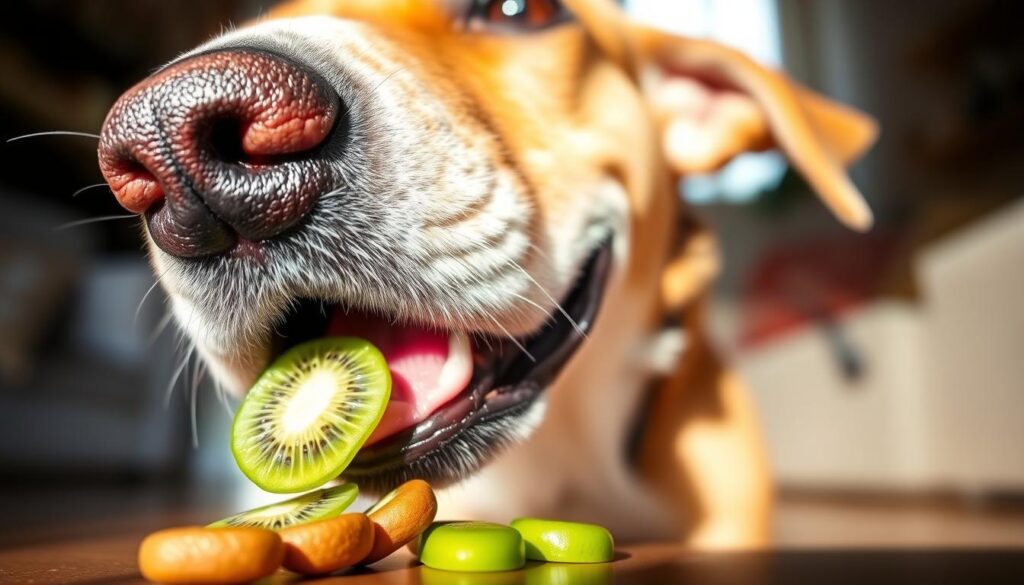
It’s important for pet owners to know about digestive issues from kiwi seeds in dogs. Some dogs may react badly to kiwi, showing symptoms that need attention.
Look out for these signs of kiwi seed toxicity in dogs:
- Digestive Distress: Vomiting or diarrhea soon after eating kiwi
- Sudden loss of appetite
- Unusual lethargy or less energy
- Abdominal discomfort or visible pain
- Unexpected allergic reactions
Dogs with sensitive stomachs might get sick from kiwi seeds. Some dogs might get sick right away. Others might show signs of intolerance that are not as obvious.
Veterinarians say to watch your dog closely after trying new foods, especially fruits with complex seeds like kiwi.
If your dog keeps showing symptoms or has a bad reaction, call your vet right away. Not all dogs will get sick from kiwi seeds. But knowing the risks helps keep your dog safe.
How Much Kiwi Can Dogs Safely Consume
Feeding dogs kiwi fruit needs careful thought about how much to give. Knowing the right amount helps keep your dog safe and healthy.
When you start giving kiwi to your dog, remember to keep it small. The amount of kiwi a dog can eat depends on several things.
Serving Size Guidelines
The right amount of kiwi for dogs depends on their size and weight. Here are some basic rules:
- Small dogs (under 20 pounds): 1-2 small kiwi slices
- Medium dogs (20-50 pounds): 2-3 small kiwi pieces
- Large dogs (over 50 pounds): 3-4 small kiwi pieces
Frequency Recommendations
Kiwi should be a rare treat, not a regular food. Here’s how often to give it:
- Limit kiwi treats to 1-2 times per week
- Space out kiwi servings to watch for any digestive issues
- Always introduce new foods slowly
Age-Based Portions
Feeding dogs kiwi changes with their age:
- Puppies: Very small portions, if any
- Adult dogs: Most can handle kiwi treats
- Senior dogs: Smaller portions because they might be more sensitive
Always talk to your vet before adding new foods, especially kiwi seeds. Watch for any signs of upset stomach or allergies when introducing kiwi.
Comparing Different Types of Kiwi for Dogs
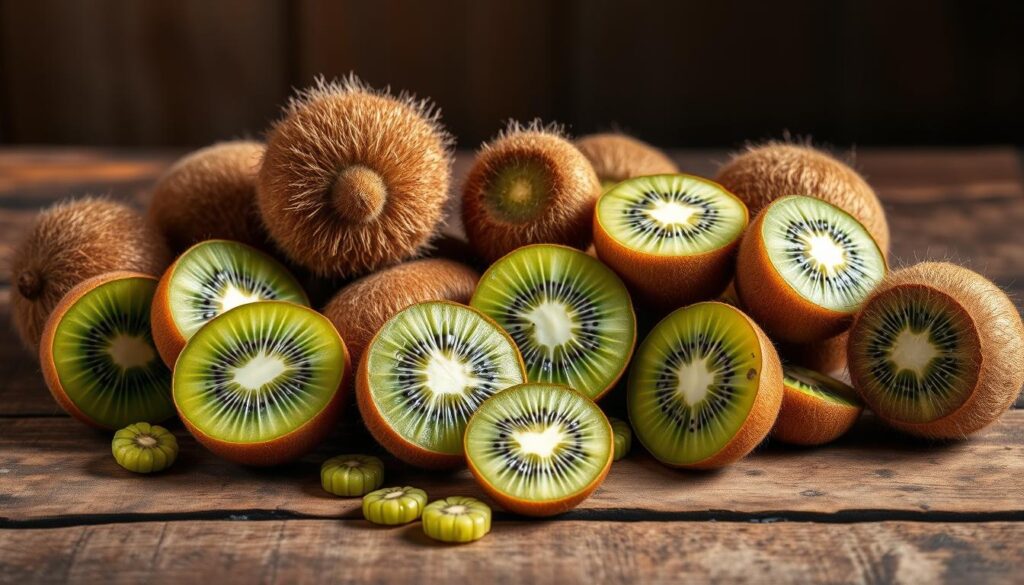
When thinking about dogs eating kiwi with seeds, pet owners often wonder about the different kiwi varieties. Green and golden kiwis both offer unique nutritional profiles for your furry friend.
Green kiwis are the most common type that dogs can safely consume. They contain a rich blend of vitamins and minerals that can support your dog’s overall health. Can dogs have kiwi seeds in green varieties? The answer is yes, but in moderation.
| Kiwi Type | Nutritional Benefits | Seed Safety |
|---|---|---|
| Green Kiwi | High Vitamin C, Fiber | Safe in Small Quantities |
| Golden Kiwi | Higher Sugar Content | Safe but Less Recommended |
Golden kiwis have a sweeter taste and slightly different nutritional composition. While they are safe for dogs, they contain more sugar. This means you should offer them less frequently.
- Always remove the fuzzy skin before serving
- Cut kiwi into small, bite-sized pieces
- Introduce new fruits gradually
“Not all kiwis are created equal when it comes to canine nutrition.” – Veterinary Nutrition Expert
Remember, kiwi should be an occasional treat, not a dietary staple for your dog.
Alternative Fruit Options for Dogs
Feeding dogs kiwi fruit is interesting, but you might also want to try other fruits. Not all fruits are good for dogs, so it’s important to know which ones are safe. This way, you can give your dog a varied diet that keeps them healthy.
Many fruits are great for dogs and can be good alternatives to kiwi. These fruits offer similar benefits, especially when it comes to are kiwi seeds safe for dogs:
- Apples (seedless): Rich in vitamins and fiber
- Blueberries: Packed with antioxidants
- Bananas: High in potassium and easy to digest
- Strawberries: Low-calorie treat with vitamin C
Each fruit has its own set of nutrients that can help your dog stay healthy. Moderation is important when adding new foods to your dog’s diet. Make sure to cut fruits into small pieces to avoid choking hazards. Also, remove any seeds or cores that could be harmful.
Pro tip: Introduce new fruits gradually and watch for any adverse reactions.
Your vet can help you figure out how to add these fruits to your dog’s diet. They can make sure your dog gets a balanced and safe meal.
Conclusion
Feeding dogs kiwi fruit needs careful thought. It’s all about moderation and making sure it’s prepared right. Can dogs have kiwi seeds? Yes, but it’s best to remove them and the skin to avoid stomach problems.
Your dog’s main diet should be balanced. Kiwi is a good treat with vitamins and minerals. But, it can’t replace their regular dog food. Start with small amounts of kiwi and watch for any bad reactions.
Getting advice from a vet is key when trying new foods. Each dog is different, so what works for one might not work for another. If you do give kiwi to your dog, do it carefully and with knowledge.
Being a good pet owner means knowing what your dog needs to eat. Kiwi should be a special treat, not a main part of their diet. Keep an eye on how your dog reacts, talk to experts, and always put their health first.

